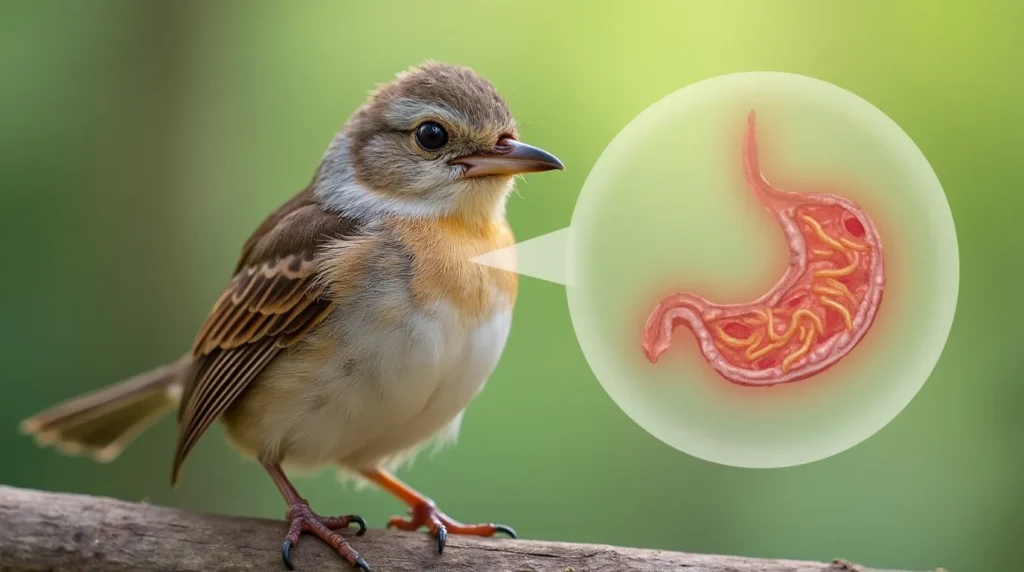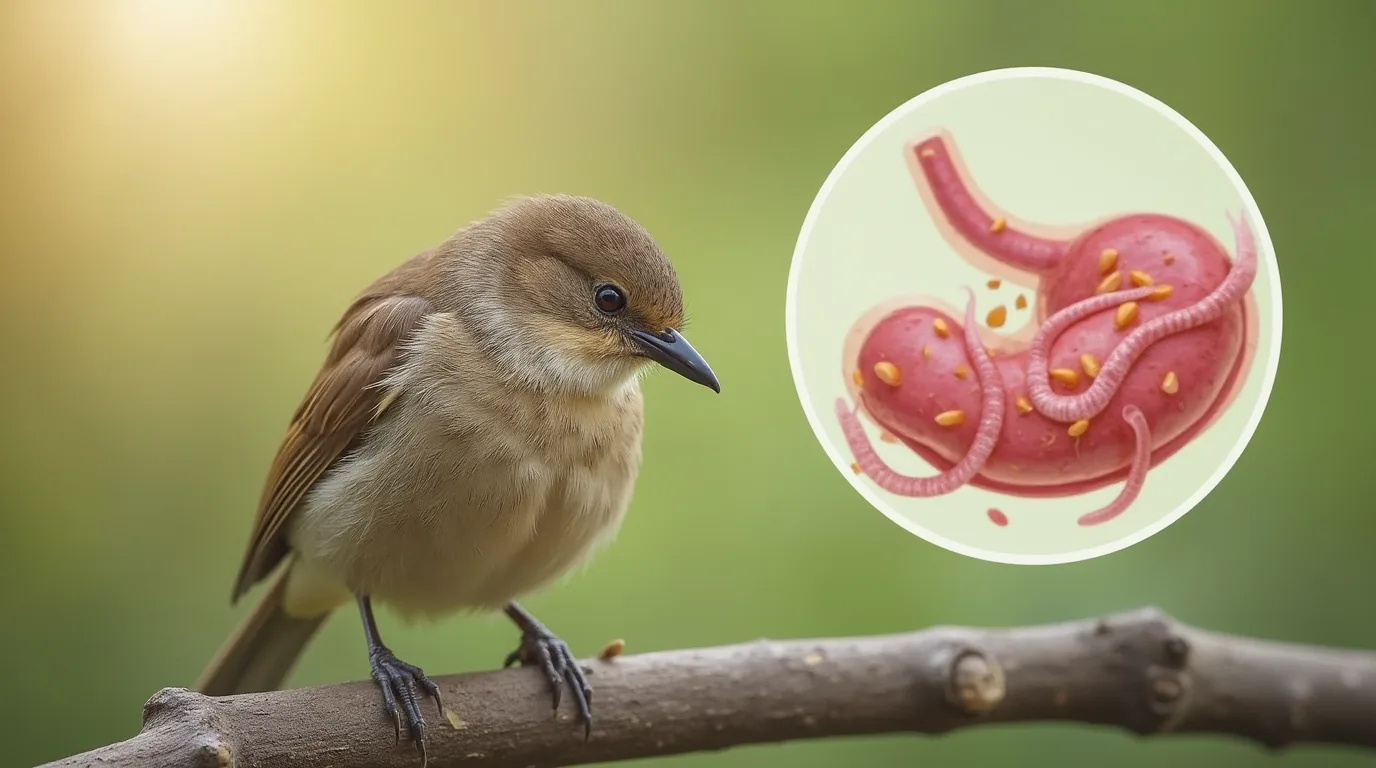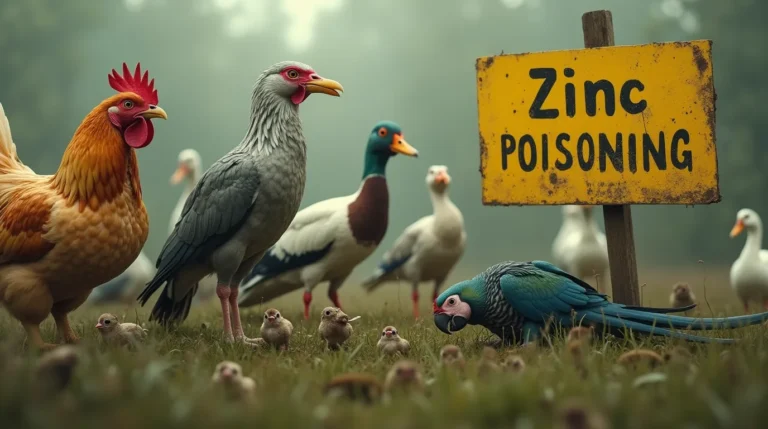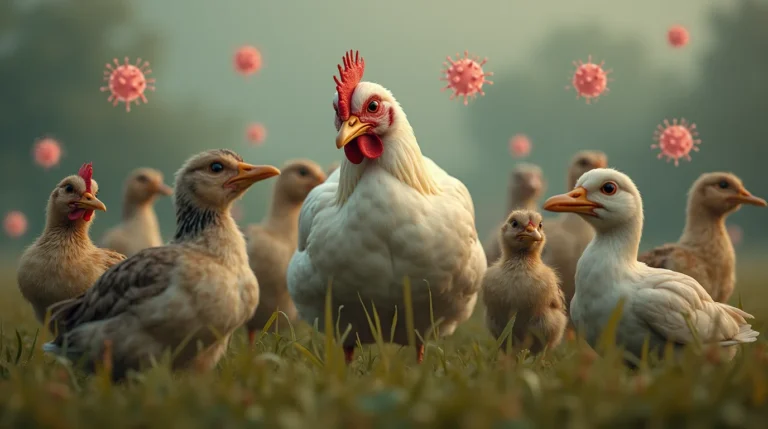Protect your feathered friends from hidden health threats: Learn 6 critical ways to detect and treat Intestinal Worms in Birds before they become a serious problem.

Table of Contents
Intestinal worms in birds are a silent menace that can compromise the health and vitality of our avian companions. Whether you’re a professional avian veterinarian, a passionate bird breeder, or a dedicated pet owner, understanding the intricacies of these parasitic infections is crucial for maintaining the well-being of your feathered friends. In this comprehensive guide, we’ll explore the complex world of intestinal worms, providing you with expert insights, detection strategies, and effective treatment approaches.
Understanding Intestinal Worms in Birds
What Are Intestinal Worms?
Intestinal worms are parasitic organisms that inhabit the digestive tract of birds, causing a range of health complications. These microscopic invaders can include:
- Roundworms (Ascarids)
- Tapeworms
- Hookworms
- Hairworms
- Gizzard worms
The Impact of Intestinal Worms on Bird Health
Intestinal worms can have devastating consequences for birds, including:
- Nutritional Deficiencies: Parasites consume nutrients intended for the bird
- Weakened Immune System: Increased susceptibility to other diseases
- Reduced Growth and Development: Particularly critical in young birds
- Potential Organ Damage: Long-term parasitic infections can harm internal organs
6 Critical Ways to Detect Intestinal Worms in Birds
1. Behavioral Changes
Signs to Watch For:
- Lethargy or unusual tiredness
- Decreased appetite
- Rapid weight loss
- Unusual aggression or behavioral shifts
2. Physical Symptoms
Key Indicators of Intestinal Worm Infection:
| Symptom | Potential Significance |
| Ruffled feathers | Compromised health |
| Dull or discolored plumage | Nutritional deficiency |
| Visible worms in droppings | Direct parasitic presence |
| Swollen abdomen | Advanced infection |
3. Droppings Analysis
Critical Microscopic Examination:
- Look for worm segments or eggs in bird droppings
- Consistency and color changes
- Presence of mucus or blood
4. Weight and Nutritional Monitoring
Tracking Potential Parasitic Impact:
- Regular weight measurements
- Nutritional intake assessment
- Growth curve monitoring
5. Veterinary Diagnostic Testing
Recommended Diagnostic Procedures:
- Fecal flotation test
- Blood panels
- Comprehensive parasitological screening
6. Preventative Screening
Proactive Approach to Parasite Management:
- Quarterly veterinary check-ups
- Regular fecal examinations
- Comprehensive parasite prevention protocols
Treatment Strategies for Intestinal Worms
Medication Options
- Oral Anthelmintic Medications
- Injectable Parasite Treatments
- Topical Deworming Solutions
Treatment Protocol Recommendations
- Consult an avian veterinarian
- Follow precise dosage instructions
- Complete full treatment course
- Implement follow-up screenings
Recommended Pet Products on Amazon
- Advanced Bird Deworming Supplement
- Comprehensive Avian Health Diagnostic Kit
- Premium Bird Nutrition Booster
- Professional-Grade Bird Parasite Prevention Formula
Intestinal Worms in Birds (FAQ)
Q: How often should birds be checked for intestinal worms? A: Recommended screening is quarterly for most bird species, with more frequent checks for high-risk environments.
Q: Can humans contract intestinal worms from birds? A: Some parasitic worms can be zoonotic. Always practice proper hygiene and consult healthcare professionals.
Q: Are certain bird species more susceptible to worm infections? A: Tropical and wild-caught birds often have higher parasite exposure risks compared to domesticated breeds.
Conclusion
Protecting your birds from intestinal worms requires vigilance, knowledge, and proactive healthcare. By understanding detection methods, implementing preventative strategies, and seeking professional veterinary guidance, you can safeguard your feathered companions’ health and happiness.
Share Your Experience: Have you dealt with intestinal worms in birds? Leave a comment below and help fellow bird enthusiasts learn from your insights!
Disclaimer: This article is for informational purposes and should not replace professional veterinary advice.
Call to Action
Explore more expert pet care tips and comprehensive guides at BlithePet Your trusted resource for advanced animal health information.





